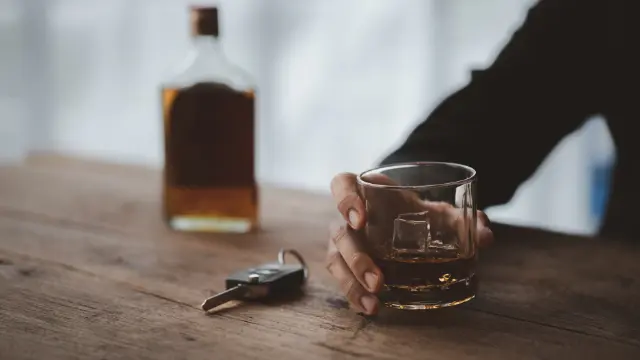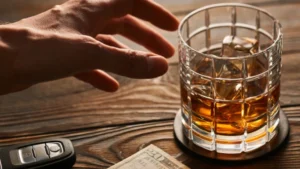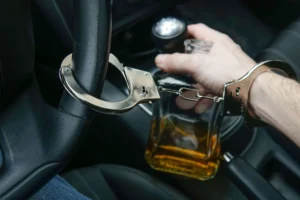

Understanding DUI/DWI Charges
Imagine you’re driving home after a night out. You feel fine, but flashing red and blue lights appear in your rearview mirror. Within minutes, you’re asked to step out of your car, perform a field sobriety test, and take a breathalyzer test. Before you know it, you’re facing a DUI (Driving Under the Influence) or DWI (Driving While Intoxicated) charge. What happens next?
A DUI/DWI conviction can lead to severe penalties, including fines, license suspension, mandatory alcohol education programs, and even jail time. However, being charged does not mean you are automatically guilty. Several defense strategies can challenge the case against you.
Drunk Driving: What the Law Says
Most states define drunk driving as operating a vehicle with a blood alcohol concentration (BAC) of 0.08% or higher. Some states impose lower limits for commercial drivers and individuals under 21. However, even if your BAC is below the legal limit, you can still be charged if an officer believes your ability to drive was impaired.
Laws vary, but common DUI penalties include:
- First offense: Fines ranging from $500 to $2,000, license suspension for up to a year, and possible jail time.
- Second offense: Heavier fines, longer license suspension, and mandatory installation of an ignition interlock device (IID).
- Third offense: A potential felony charge, leading to years in prison and permanent license revocation.
Some states, such as Arizona and Texas, have zero-tolerance policies for repeat offenders, leading to automatic jail sentences.
Impaired Driving: Factors That Can Lead to a DUI Arrest
Many people assume that failing a breathalyzer test is enough to convict them of impaired driving, but that’s not always the case. DUI arrests often rely on multiple factors, including:
- Erratic Driving Behavior: Swerving, speeding, or failing to obey traffic signals.
- Field Sobriety Test Results: Officers use physical coordination tests, such as the walk-and-turn or one-leg stand, to assess impairment.
- Breathalyzer and Blood Tests: These tests measure BAC levels, but they are not always accurate.
However, these tests are not foolproof. Many DUI defenses focus on challenging their reliability.
DUI Defense Strategies: How to Fight the Charges
1. Challenging the Traffic Stop
A police officer must have a valid reason for pulling you over. If the stop was made without probable cause, any evidence gathered afterward—such as field sobriety or breathalyzer tests—may be inadmissible in court.
For example, in one case, a driver was pulled over for “weaving within his lane.” His attorney argued that this did not constitute probable cause, leading to a dismissal of charges.
2. Questioning Field Sobriety Tests
Field sobriety tests are highly subjective. Many sober individuals struggle with balance tests due to:
- Medical conditions (e.g., vertigo, knee injuries, or neurological disorders)
- Uneven road surfaces
- Nervousness or fatigue
If an attorney can prove that a failed field sobriety test was due to factors unrelated to alcohol, it can weaken the prosecution’s case.
3. Breathalyzer Inaccuracies
Breathalyzers can malfunction or produce false positives due to:
- Improper calibration or maintenance
- Medical conditions (e.g., acid reflux or diabetes, which can produce alcohol-like readings)
- Certain medications (such as asthma inhalers)
An experienced DUI lawyer may request breathalyzer maintenance records to identify errors that could invalidate the test results.
4. Blood Test Errors
If a blood sample was taken, the defense can challenge:
- Chain of custody: Were the samples properly handled?
- Contamination risks: Was the sample stored correctly?
- Testing procedures: Were there errors in lab testing?
In some cases, blood samples have been mislabeled, leading to wrongful DUI convictions.
5. Rising Blood Alcohol Defense
Alcohol absorption takes time. A person’s BAC level continues rising for 30-90 minutes after their last drink. If a driver was pulled over right after drinking, their BAC may have been under the limit while driving but over the limit by the time they took the test. This is called the rising blood alcohol defense.
6. Medical Conditions or Alternative Explanations
Certain medical conditions can mimic signs of impairment, such as:
- Diabetes or Hypoglycemia: Can cause dizziness and confusion, similar to intoxication.
- Neurological Disorders: Can affect speech and coordination.
- Fatigue or Stress: Can cause delayed responses, leading to misinterpretation by officers.
A medical expert’s testimony can help prove that these conditions—not alcohol—were responsible for signs of impaired driving.
Sentencing Factors in DUI Cases
DUI sentences depend on several factors, including:
- Prior convictions: Repeat offenders face harsher penalties.
- BAC level: A higher BAC often leads to enhanced sentencing.
- Presence of minors: Having a child in the car increases penalties.
- Involvement in an accident: If the DUI caused injuries or fatalities, felony charges apply.
Judges may reduce penalties for first-time offenders who complete rehabilitation programs or community service.
Case Study: A DUI Defense That Led to Case Dismissal
Background
James, a 45-year-old school teacher, was arrested for DUI after being stopped at a checkpoint. His breathalyzer test showed a BAC of 0.09%, slightly over the legal limit. Facing a license suspension and possible jail time, he hired a DUI defense attorney.
Defense Strategy
- Questioning the Checkpoint’s Legality: The defense argued that the checkpoint did not comply with state guidelines, making the stop unlawful.
- Breathalyzer Calibration Issue: Records showed that the breathalyzer had not been calibrated in three months.
- Medical Condition: James had acid reflux, which can produce false BAC readings.
Outcome
The judge ruled that the checkpoint was unconstitutional, leading to the case being dismissed.
Conclusion
If you’re facing a DUI or DWI, hiring an experienced defense attorney can make all the difference. Understanding your rights and legal options can help protect your future.
Frequently Asked Questions (FAQs)
- Can I refuse a breathalyzer test? Yes, but refusing can result in immediate license suspension under implied consent laws.
- Can a DUI charge be reduced? Yes, plea deals can reduce DUI charges to reckless driving, known as a “wet reckless”.
- Does a DUI stay on my record forever? It depends on the state. Some allow expungement after a certain period.
- Can I be charged with DUI if my BAC is under 0.08%? Yes, if officers believe your driving was impaired, you can still be arrested.
- Will a DUI increase my insurance rates? Yes, a DUI can lead to higher premiums or policy cancellation.



